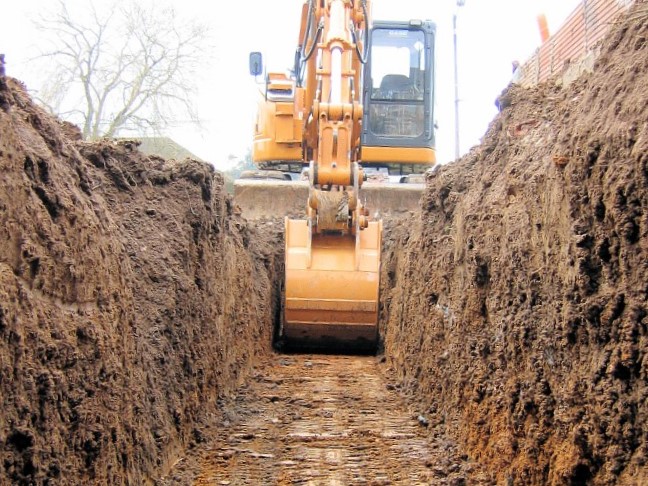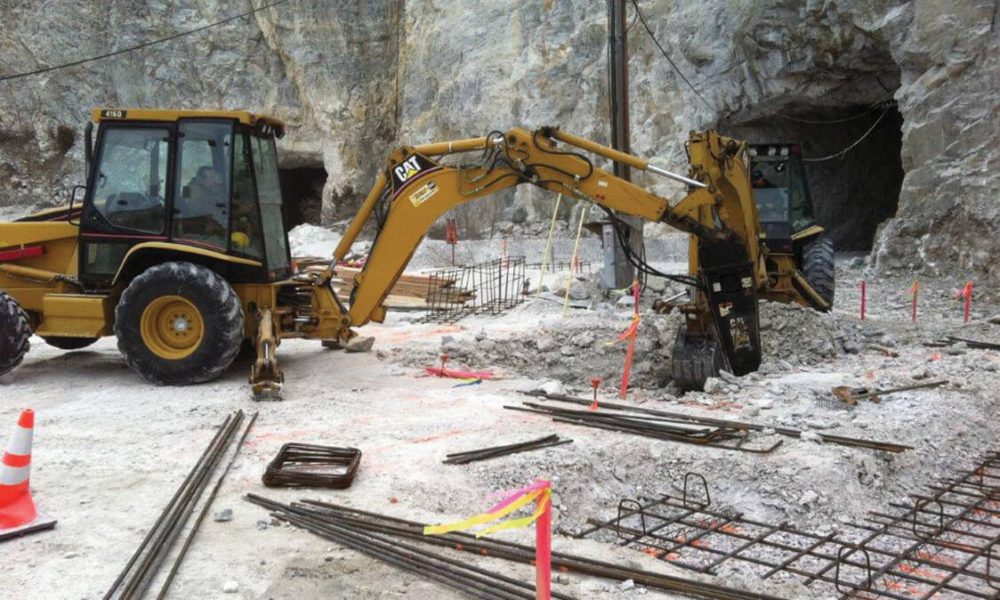Industrial Lancaster Trenching - Trenching Services for Organizations in Lancaster
Industrial Lancaster Trenching - Trenching Services for Organizations in Lancaster
Blog Article
Comprehensive Excavation Approaches: Understanding the Fundamentals for Success
In the world of construction and civil engineering, the value of efficient excavation methods can not be overemphasized. The careful preparation, accurate execution, and precise interest to detail needed in excavation jobs require a detailed approach that includes various fundamental elements. From first soil analysis to the execution of precaution and routine progression monitoring, mastering these core elements is important for attaining success in any excavation venture. However, real proficiency exists not simply in comprehending these principles but in seamlessly incorporating them to navigate the intricacies of excavation projects with skill.
Comprehending Excavation Job Planning

The initial phase of any kind of excavation job is the planning stage, where essential decisions are made that can substantially affect the end result of the project. Recognizing the project timeline, budget, and extent restraints is important for producing a thorough excavation strategy that guarantees the task's success.
One trick aspect of excavation job planning is the development of a detailed timeline that describes the sequence of deadlines, turning points, and activities. This timeline serves as a roadmap for the job group, permitting them to track development and make essential modifications to make sure the job remains on schedule. Additionally, a well-defined budget that accounts for all expenses, including tools rental, labor prices, and products, is necessary for preventing cost overruns and hold-ups. By meticulously considering all these variables during the drawing board, excavation jobs can be implemented effectively and effectively, bring about effective end results.
Dirt Analysis and Site Evaluation
Performing comprehensive dirt evaluation and website evaluation is a crucial step in the prep work phase of any kind of excavation project. Soil evaluation involves establishing the composition, framework, and homes of the dirt at the excavation site. This info is crucial for recognizing the soil's bearing capacity, dampness web content, and possibility for disintegration, which are essential consider determining the excavation techniques and equipment required for the job.
Site assessment goes beyond soil evaluation and incorporates a broader assessment of the total website problems. This examination includes identifying any type of potential dangers, such as underground utilities, environmental problems, or unpredictable terrain, that can impact the excavation process. By completely reviewing the site, task managers can develop effective excavation techniques that prioritize safety, efficiency, and environmental security.
Using sophisticated technologies like ground-penetrating radar, soil sampling, and drone studies can improve the precision and efficiency of dirt evaluation and site assessment. Investing time and resources in these preliminary steps can inevitably conserve time and prevent expensive delays or complications during the excavation process.
Equipment Selection and Utilization
Efficient excavation tasks depend heavily on critical tools option and application to make sure ideal performance and productivity. Choosing the ideal tools for the work is crucial in making best use of efficiency and reducing downtime. Aspects such as the sort of dirt, deepness of excavation, and job scope play a significant duty in determining the most ideal tools for the task handy.

Along with picking the ideal devices, correct use is key to job success. Operators should be educated to deal with the equipment safely and successfully - lancaster excavation. Normal upkeep checks and timely fixings aid prevent failures and make sure constant efficiency throughout the task
Precaution and Regulations Compliance
In the world of excavation tasks, prioritizing security procedures and compliance with guidelines is extremely important to making sure a safe and legitimately audio operational atmosphere. Safety measures incorporate a variety of practices, including conducting comprehensive website analyses, applying proper signage and barriers, and giving ample safety training for all workers associated with the excavation process. Adherence to regulations, such as OSHA requirements in the United States, ensures that the excavation task fulfills the necessary standards to secure workers, bystanders, and the surrounding setting.

Surveillance Progress and Adjusting Techniques
Exactly how can forecast supervisors properly track the development of excavation jobs and adapt their techniques as necessary to maximize outcomes? Monitoring development is crucial for making sure that excavation projects stay on track wikipedia reference and fulfill due dates.

Conclusion
In verdict, grasping the principles of detailed excavation techniques is crucial for the success of any job. By understanding job preparation, examining dirt and site problems, picking appropriate tools, following safety and security guidelines, and monitoring progression, job supervisors can ensure a efficient and smooth excavation procedure. Applying these techniques will certainly bring about successful results and minimize potential risks or obstacles during the excavation job.
The first stage of any type of excavation job is the preparation phase, where critical choices are made that can significantly affect the result of the task. Recognizing the task budget plan, timeline, and scope restraints is essential for developing an extensive excavation plan that makes sure the job's success.
Just how can project managers blog here successfully track the improvement of excavation jobs and adjust their techniques as necessary to enhance outcomes? By very closely monitoring progression and being prepared to adjust strategies, job managers can improve the total success of excavation projects.
By understanding project planning, assessing soil and website conditions, picking suitable equipment, complying with safety and security policies, and keeping track of progress, project managers can guarantee a reliable and smooth excavation process.
Report this page